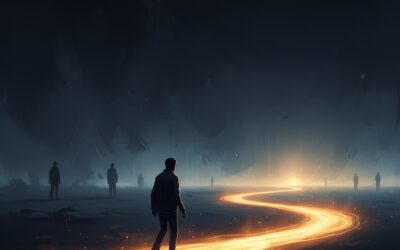There’s something fundamentally devastating about crimes against children, especially sexual abuse. The damage extends beyond the physical. It reaches deep into the child’s mind, altering their perception of the world and shattering their innocence in ways that can never be fully restored. As I think about this, I’m struck by the analogy between a child’s loss of innocence and an adult’s loss of trust.
Children come into this world trusting, unguarded, and full of naivety. That naivety is precious, and when it’s stolen through abuse, the effects are long-lasting. The child may grow up, but their relationship with trust is forever changed. Their belief in goodness, in safety, in the kindness of others, is tainted by what they’ve endured.
In many ways, this mirrors what happens when a naive adult is subjected to betrayal or manipulation. While it’s true that adults “should know better,” the truth is that naivety can be a part of adulthood too. Some people are just wired to see the good in others, to expect honesty, to trust without questioning ulterior motives. And when that trust is broken through a painful experience, the result is more than just sadness—it’s a shift in their entire relationship with the world. A shift that can’t be undone.
Hurting anyone is tragic, but to hurt someone in a way that changes how they see humanity, how they approach relationships and life itself, is a deeply sad reality. It’s not just about the act itself, but about the long-term consequences. When someone loses their ability to trust, they lose a part of themselves that might never come back. And with that loss, something in their soul becomes hardened, more cautious, less open.
This is a pain that resonates with me because it speaks to something primal: our need to feel safe, to feel that we can trust others and navigate the world without the constant threat of betrayal or harm. When that safety is taken away—whether in childhood or adulthood—it leaves a wound that may heal, but never quite the same way.
In the end, what’s left is a more guarded version of oneself. A person who has to relearn how to navigate relationships, how to measure trust, and how to believe in the goodness of others again. It’s a journey many people don’t choose, but are forced to embark on. And it’s one of the greatest tragedies I can imagine—to lose faith in the human race itself.




0 Comments